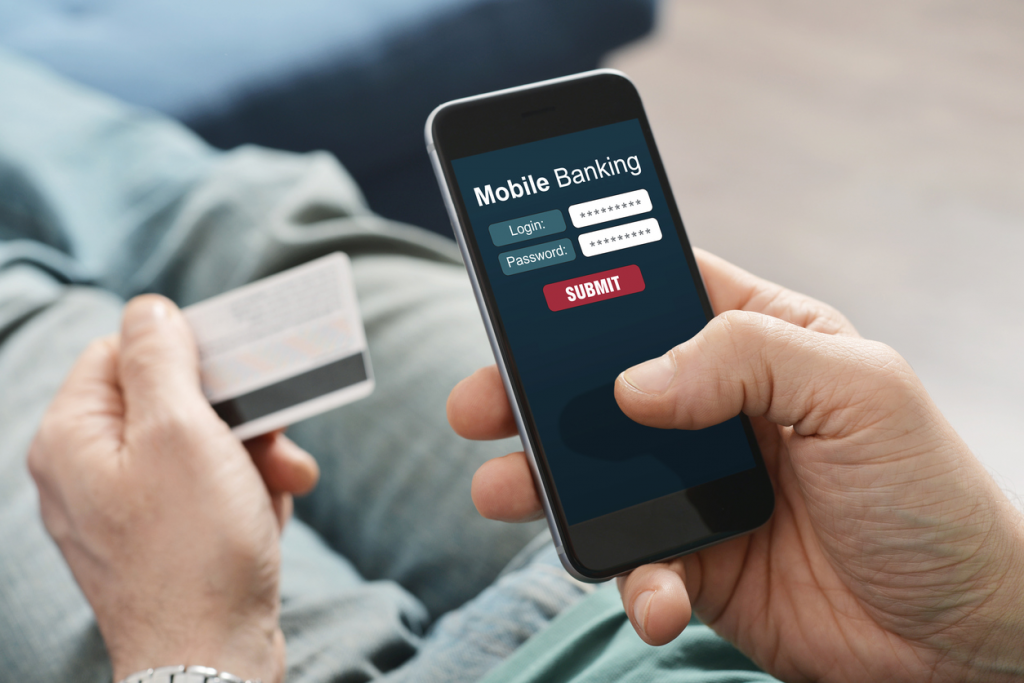
Available anytime and anywhere, mobile banking makes the arduous task of paying taxes a tiny bit easier. Its greatest advantage is convenience. Mobile gives legs to personal finance management, allowing you to make payments from the coffee shop or while commuting to work.
But mobile banking’s strongest suit may be its weakest link, too.
If you’re not aware of potential risks and safety measures that serve to eliminate them, you may fall victim to identity thefts and various phishing scams. From criminals pretending to be IRS officials to pickpockets lurking behind every corner, security risks are terrifyingly common.
Here’s how to avert them in 5 easy steps.
1. Be Careful Not to Fall for Phishing Scams
In fishing, you are the one throwing a bait.
In phishing, however, the bait is you – the average internet user.
Frequent on both desktop and mobile devices, phishing is an attempt to steal confidential data from users who are naive enough to fall for impersonation scams. Two main mediums for this criminal technique are email and SMS, both of which you use via smartphone on regular basis.
The next time you suspect you’re being phished, remember this:
- Never follow the links you receive from “IRS” via email or text.
- Navigate to your bank’s website the other way around, via the browser.
- Alternatively, use your bank’s official mobile app.
- Never send your personal information via email or text.
- Whenever in doubt, contact your bank to check authenticity.
Since phishing is not always easy to recognize, the general rule of thumb here is to steer clear from all finance-related messages you receive via email and SMS. IRS would never use these channels for official correspondence, and neither would trustworthy online banks.
2. Protect Your Phone With Strong Passwords
Another way criminals will try to get their hands around your data and money is by breaking through your phone’s defenses. For them to succeed, the only thing you need to do is use a passcode that’s easy to crack or decide to manage multiple accounts with the same password.
Create a different password for separate logins using the following rules:
- A strong password is at least 10 characters long.
- It’s a combination of upper- and lower-case letters.
- Along with letters, it also contains numbers and special characters.
Cybersecurity experts recommend changing your passwords every month. You should also keep them stored in specialized password management apps. To avoid phrases that can be guessed from your browsing history, use in-app password generators.
3. Thwart Thieves in the Event of Physical Theft
Even though a solid password should be able to keep your data protected in the event of physical theft as well, there are a few more options you can explore to prevent data breaches before your phone gets stolen:
- If you keep any sensitive files on your phone, encrypt them.
- Instead of a single PIN code, use two-factor authentication.
- Learn how to remotely track and disable your smartphone.
That way, pickpockets might be able to reset your device and sell it on the black market, but they won’t be able to compromise your sensitive data or steal money using your mobile banking passwords.
4. Leave Mobile Banking for Private Moments
Convenience is not a good enough reason to put your finances in jeopardy.
Yes, the 24/7 availability is mobile banking’s most attractive quality. However, do your best to save any sort of financial activity, taxes included, for private moments. Otherwise, you’ll be risking your privacy in more ways than you realize, both online and offline.
Not only can mobile banking in public spots expose you to pickpockets and prying eyes, but it can also make you vulnerable by compelling you to use unreliable public WiFi networks. In either case, you never know who might be peeping or eavesdropping.
5. Use a Virtual Private Network for Banking
When you connect to a mobile virtual private network, your IP address gets masked and replaced with a virtual address that criminals cannot trace back to you and your data. You’re basically invisible. No one can track your browsing history and activity, not even your state officials.
A mobile VPN is a must if you need to pay your taxes from a public place, but it’s equally beneficial when you’re using it from your cellular network or private WiFi. In combination with other safety tips from this list, a mobile VPN makes your smartphone unbreachable.
Your smartphone is a brilliant device – you should be able to leverage its best features without having to fear for your security. And if we’re being completely honest, mobile banking is too convenient to be left unused. Just follow these steps and feel free to pay your taxes on mobile.